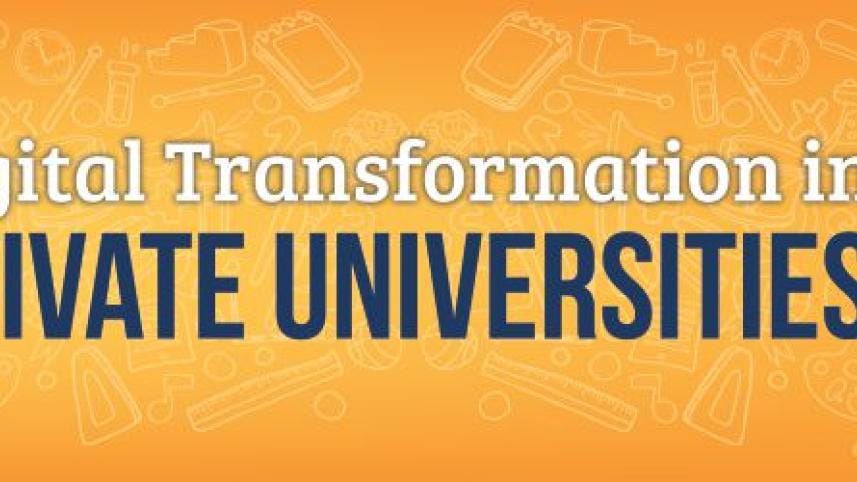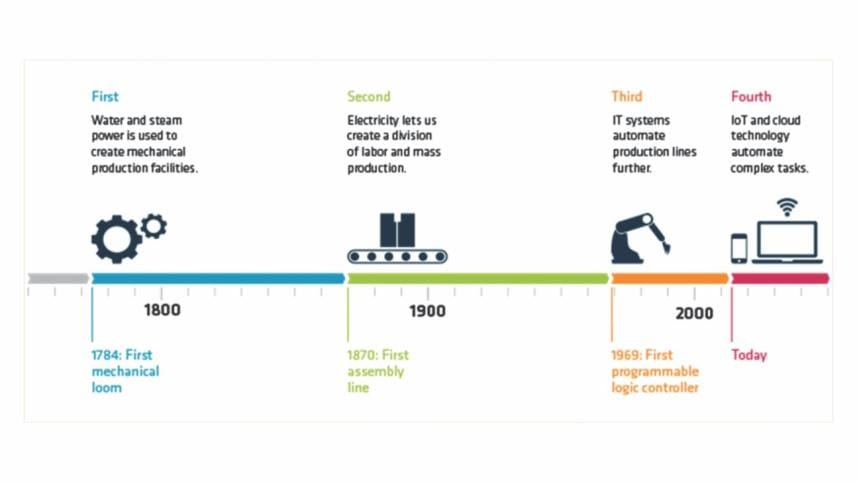Pivoting Higher Education in the Fourth Industrial Revolution

PRICEWATERHOUSECOOPERS predicts that Bangladesh will become the 23rd largest economy in the world by 2050. The country is home to a youth population (age 15-24) of 75.6 million at the moment. A research study by Bangladesh Institute of Development Studies says 89.6 percent of the youth are unskilled. Unemployment is at 47 percent. Approximately 160,000 students graduate each year, yet employers struggle to find skilled employees. There are huge economic prospects at our doorstep but we do not have the means to get there, to be able to transform our youth to real human capital.
WHAT REALLY IS THE SKILL GAP?
The impact of the Fourth Industrial Revolution (4IR) is all around us and its pivot will be faster than previous ones. New technologies that combine the physical, digital and biological worlds will redesign our lives. Disruptive technologies such as robotics and artificial intelligence (AI) are already altering our workplaces.

SHOULD WE WORRY?
Bangladeshi company Envoy Textiles installed 14 robotic machines in their factory, replacing hundreds of repetitive tasks and compelling workers to skill up. And it's not only the blue collar jobs that are at risk. Square Hospital has automated a series of medical tests such as cell count, lipid profile, etc.—something that was previously executed by pharmacists. Globally, Unilever is using AI in the recruitment process. Use of AI enabled Harley Davidson to increase its sales by 2930 percent. If that's not enough, an algorithm recently designed seven million labels, each featuring a unique and distinct design, for Nutella jars as part of an incredibly successful marketing campaign in Italy.
Such disruption calls for a reboot in thinking, particularly for fresh graduates dreaming of careers in sales, marketing, HR or entrepreneurship. Most jobs will become obsolete, just as typists lost jobs as computers became common in offices!
However, our education system is stuck in the Second Industrial Revolution. We need to move from teaching "WHAT" (hard skill) to "WHY" and "HOW" (soft skills). The current system fails to instill abilities to question, criticise and analyse. It assumes that memorising information in textbooks is enough. We confuse information for knowledge, but information is everywhere today. You can Google it all! Knowledge is one's ability to synthesise information and act responsibly. Are educational institutions preparing students accordingly? Bangladesh has grown accustomed to viewing education as a way for job creation—producing managers and not thinkers or problem solvers. We have turned education into a commodity!
Emerging technology and the shortcomings of the education system will create mass unemployment and lead to enormous social and political chaos. Something which has gone unnoticed by policymakers today.
The World Economic Forum identifies 10 skills that will be crucial to survive in 4IR, such as emotional intelligence and cognitive flexibility, creativity, critical thinking and collaboration. This is a mindset that will give one the skills to "synthesise" information and act responsibly while continuously enabling them to re-skill themselves. Millennials and their future generations will change at least seven jobs in their lifetime—five of those jobs don't even exist today.
In a nutshell, everyone needs to develop an innovator's mindset. The future calls for the establishment of innovation as an educational discipline. Therefore, our best bet is to prepare the youth for the changing future by shifting our focus towards innovation and interdisciplinary experiential learning. Instead of aspiring to be a manager, the youth should learn to "think" and "implement". Why? Because what they do today, machines can and will do it better.
Argentina has pivoted resources on developing the skills of teachers. The reform focuses on amplifying teachers' capacity, where they will no longer be the repository of knowledge but facilitators of learning. Universities like Harvard and MIT are aggressively moving to interdisciplinary education breaking the old-school methods. Bangladeshi universities must break out of the homogeneity in education options that limit youth to silo learning for traditional professions. We need to create artists, philosophers, system designers, caregivers and many others who are creators.
Emerging technologies will continue to serve users better with precision and efficiency. While they threaten the jobs of today, they also inspire opportunity for innovators and entrepreneurs to forge a new job market.
Our actions today will define the future of the nation to become an economic giant. We need to enable our youth to survive emerging technologies. The future of skilled and value-driven youth as intrapreneurs and entrepreneurs will sketch the landscape of our economic growth that needs to be inclusive of all.
Saif Kamal is the founder of Toru Institute of Inclusive Innovation. He is a Global Shaper and Davos50 2017 at the World Economic Forum.
Twitter: @saifkamal
 For all latest news, follow The Daily Star's Google News channel.
For all latest news, follow The Daily Star's Google News channel.
Comments